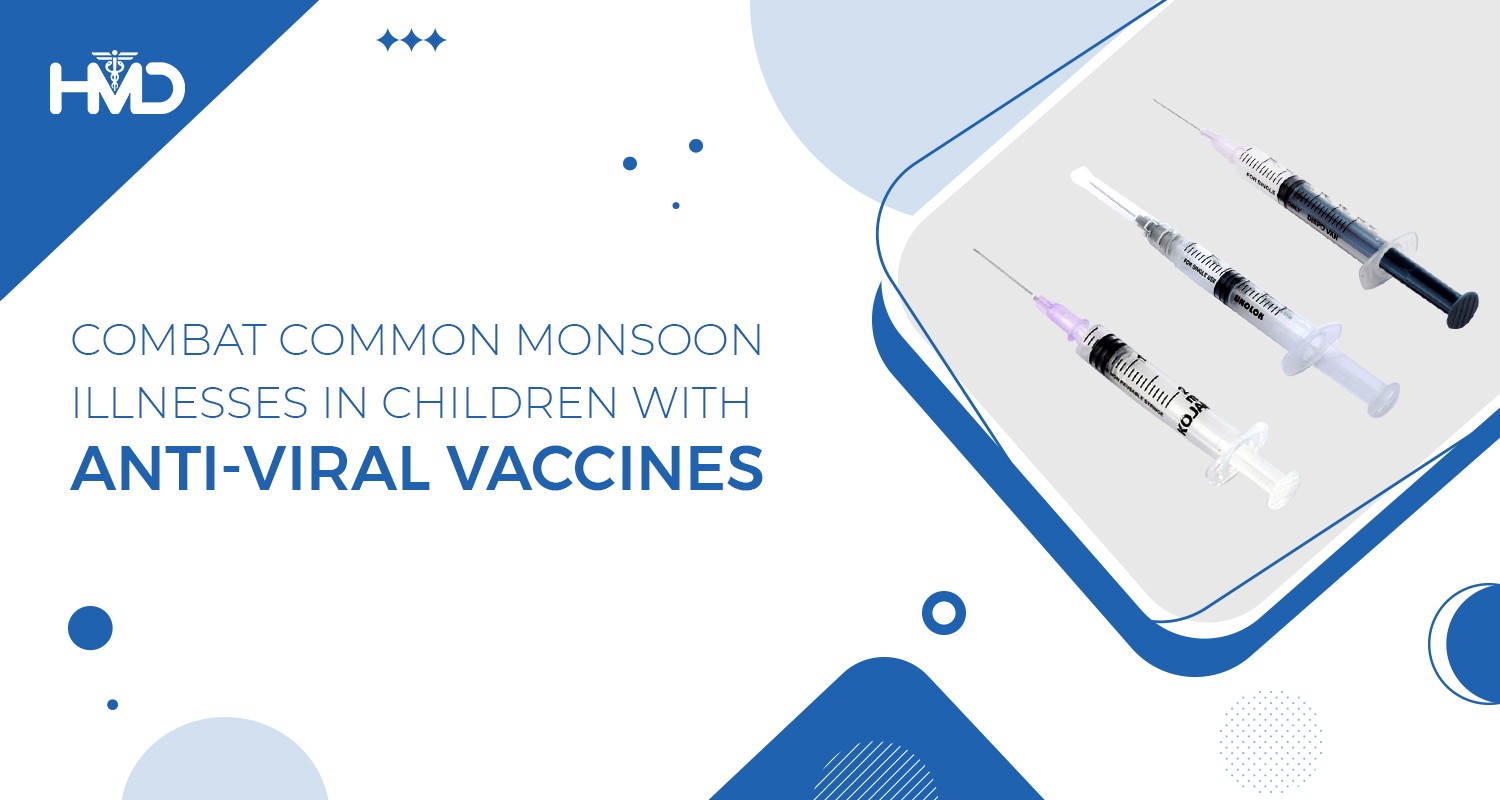

One of the most awaited seasons of the year, the monsoon brings relief after a long, scorching summer. Unfortunately, monsoon showers also bring with them a number of viral fevers and infections – particularly in babies and children. Listed below is a range of common monsoon-related illnesses in children, their symptoms, and the vaccines that help prevent them.
Most Common Monsoon-Related Illnesses in Children
Malaria
Malaria is caused by the bite of the female Anopheles mosquito that primarily breeds in fresh water collections. It is a cause for grave concern, malaria is a debilitating disease that can make children very sick and leads to a considerable number of avoidable deaths. Symptoms of the ailment include fever & chills, body ache, fatigue, cough, headache, and a general feeling of weakness and discomfort.
Typhoid
Typhoid is caused by a bacteria named Salmonella typhi. People, including children, typically contract it by eating or drinking contaminated food and water with night soil and excreta or waste water. Symptoms of typhoid include persistently high fever, headache, constipation, and tiredness. As the infection progresses, abdominal pain and diarrhoea may follow.
Cholera
Cholera is essentially an infection of the intestine caused by the Vibrio cholerae bacteria. It is typically caused by drinking water or eating food contaminated with this bacteria, such as unhygienically prepared street snacks. Cholera is a serious malady that can trigger extremely watery stools, leg cramps, vomiting, and thirst caused by dehydration.
Dengue
Dengue is a viral infection that is transmitted to humans through the bite of Aedes aegypti mosquitoes. The infection causes high fever, headache, nausea, vomiting, and swelling of the lymph nodes. In some cases, the symptoms could worsen and become a life-threatening condition known as dengue hemorrhagic fever. This could lead to internal bleeding and organ failure which could prove fatal.
Viral Fever
Although a perennial ailment, viral fever, caused by various viruses, is more common during the monsoon season. It can be caused by inhaling tiny droplets containing the virus floating in air or ingesting contaminated food and beverages. Symptoms in children include high fever, chills, repeated sneezing, sore throat, loss of appetite, and general weakness.
The Importance of Anti-Viral Vaccines
Fortunately today, most of the above-mentioned diseases can be prevented with the help of anti-viral vaccines. In October 2021, the World Health Organization (WHO), for the first time, recommended the widespread use of the malaria vaccine – known as RTS,S/AS01 (RTS,S) – for children at risk. Likewise, the WHO recommends that the cholera vaccine be administered to all individuals above the age of one year. The typhoid vaccine can be given via injection to children above 2 years of age, and the oral vaccine to kids aged 6 years or older. Although there is no dengue vaccine in the country yet, development of such a vaccine is very much in progress.
The Auto-Disable (AD) syringe is highly recommended for vaccination by the WHO and its partners such as the United Nations Children’s Fund (UNICEF). AD syringes prevent re-use by locking automatically after a single use, thus eliminating the risk of contracting an infection due to a contaminated needle. UNICEF has been routinely procuring and delivering these syringes for the vaccination of children worldwide.
One of the most reliable AD syringes in the world is the Kojak Selinge manufactured by Hindustan Syringes & Medical Devices (HMD) Ltd. The first AD syringe to be launched in India, Kojak Selinge is based on a ring & break mechanism which makes sure the plunger breaks if re-use is attempted. Affordably priced and easy to use, it is available in both detachable and fixed needle design options. In fact, for more than a decade, HMD Ltd. has been one of the largest suppliers of AD syringes to UNICEF for its mass immunisation programmes for children the world over. The world’s largest buyer of AD syringes, UNICEF recently reiterated its commitment to safe injection by exclusively procuring AD syringes for its COVID-19 vaccination efforts.

Add Comment